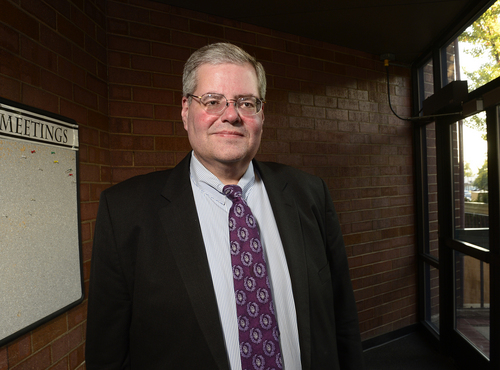This is an archived article that was published on sltrib.com in 2014, and information in the article may be outdated. It is provided only for personal research purposes and may not be reprinted.
It has been said that war is too important to be left to the generals. Whether or not that is true depends on the war. And the generals.
But the people who sit at the top of the policy pyramid for Utah's system of public schools increasingly behave as though they think education is too important to be left to teachers. Whether that's a good idea is a theory we are about to test.
And it is a test that the whole of Utah should be awaiting with at least as much curiosity as they anticipate their own students', and their own schools', scores.
By the narrowest of votes, the Utah State Board of Education Friday chose Ogden School Superintendent Brad Smith as the new head of the state Office of Education. Of the four finalist's whose names were made public during the search process — identities and resumes of the 20-to-25 other applicants were never released — Smith is clearly the one with least experience and formal training in teaching.
That was also the case when Smith, an attorney by trade, was appointed to the top job in Ogden three years ago, without a public search, after a spell as a member of the local school board. Clearly, the idea was to blow things up and change what Smith and the rest of the board thought was an unacceptable rut that saw low test scores and a huge achievement gap between low-income and immigrant students — of which both Ogden and Utah have many — and the other kind.
In the short time Smith has been in charge in Ogden, test scores and graduation rates in the weakest schools have gone up. Which means little, or nothing, in the short-term.
Smith also managed to anger a great many of the hold-over educators, to the point that teacher turn-over spiked, and such positions as reading coaches and librarians were eliminated. Many of those who were, and are, active in the Utah Education Association find themselves "horrified," by both Smith's tenure in Ogden and his appointment to the state post. Outspoken parents in Ogden, meanwhile, say his fresh eye has led to significant improvements.
By choosing someone who has the drive to make changes but not significant experience or any degrees in education, as they did with the choice of interim superintendent Joel Coleman, the state board is taking a large leap of faith.
Any profession, from the military to education, from medicine to journalism, can benefit from an occasional infusion of new blood and the perspective of a different eye.
But the experiment the state board has begun, with zero public input, may be like sending someone who is passionately interested in health care reform to do brain surgery.



